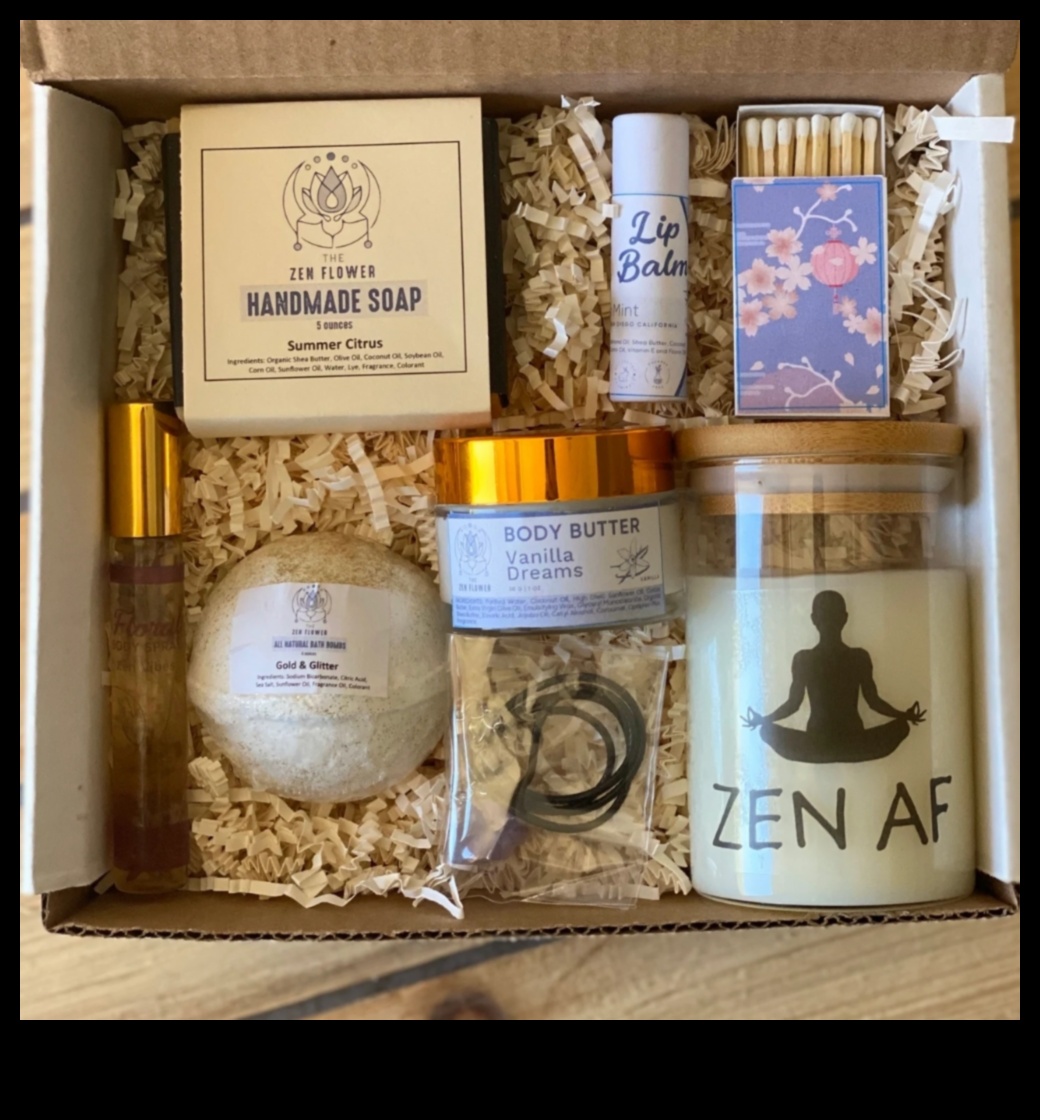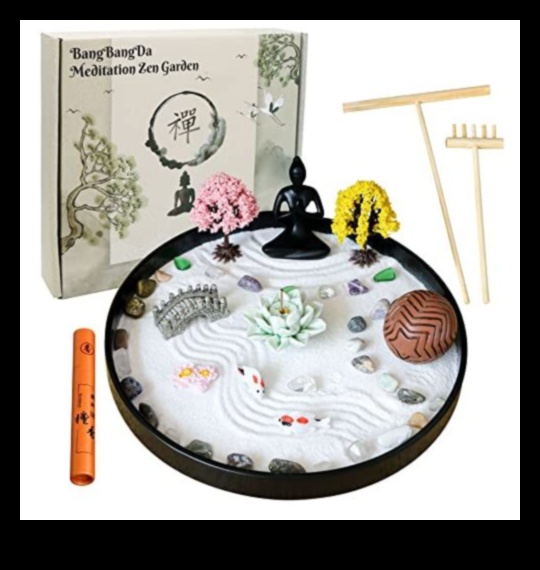
Zen Zephyr: Gifts for Mindfulness and Tranquil Living
Mindfulness is a state of being present and aware of the present moment. It is a practice that can help to reduce stress, improve focus, and promote a sense of well-being.
Tranquil living is a lifestyle that is characterized by peace and simplicity. It is a way of living that can help to reduce stress, improve health, and promote a sense of well-being.
If you are looking for gifts for people who are interested in mindfulness and tranquil living, here are some ideas:
- Books on mindfulness and meditation
- Yoga mats and other yoga accessories
- Essential oils and diffusers
- Candles and incense
- Crystals and other stones
- Music and meditation CDs
- Gift cards to spas and wellness centers
These gifts are all designed to help people to relax, de-stress, and create a more peaceful and tranquil environment in their lives.
| Feature | Mindfulness Gifts | Zen Gifts | Zen Living | Gift Giving | Holistic Gifts |
|---|---|---|---|---|---|
| Calming | Yoga mats, essential oils, candles | Candles, incense, crystals | Yoga, meditation, healthy eating | Thoughtful, meaningful gifts | Natural, organic products |
| Relaxing | Meditation apps, books on mindfulness | Spa treatments, massages | Aromatherapy, massage, yoga | Gift cards to spas, wellness centers | Gifts that promote health and well-being |
| Thoughtful | Gift cards to meditation classes | Gifts from the heart | Gifts that show you care | Gifts that are unique and special | Gifts that are handmade or locally sourced |
| Meaningful | Gifts that promote mindfulness | Gifts that promote peace and tranquility | Gifts that help you live a healthier life | Gifts that show you care | Gifts that are made with love |
| Unique | Handmade jewelry, crystals | Unique home decor | Gifts that are one-of-a-kind | Gifts that are unexpected | Gifts that are personalized |

Benefits of Mindfulness
Mindfulness has been shown to have a number of benefits for both physical and mental health. These benefits include:
* Reduced stress and anxiety
* Improved mood and well-being
* Increased focus and concentration
* Improved sleep
* Reduced pain
* Improved immune function
* Increased self-awareness
* Enhanced relationships
* Increased compassion and empathy
Mindfulness can also help to reduce the risk of developing chronic diseases such as heart disease, stroke, and cancer.
If you are interested in learning more about the benefits of mindfulness, there are a number of resources available online and in libraries. You can also find mindfulness classes and workshops in your local community.
3. How to Practice Mindfulness
Mindfulness is a practice that involves paying attention to the present moment, without judgment. It can be practiced through meditation, yoga, or simply by taking a few moments each day to focus on your breath and your thoughts. When you practice mindfulness, you are training your mind to be more aware of your thoughts and emotions, and to let go of the things that you cannot control. This can help you to reduce stress, improve your mood, and live a more fulfilling life.
There are many different ways to practice mindfulness, but some of the most common methods include:
- Meditation
- Yoga
- Mindfulness-based stress reduction (MBSR)
- Mindfulness-based cognitive therapy (MBCT)
- Mindfulness-based eating awareness training (MB-EAT)
If you are new to mindfulness, it is a good idea to start with a simple practice, such as meditation or yoga. You can find many resources online and in libraries to help you get started. Once you have some experience with mindfulness, you may want to explore more advanced practices, such as MBSR or MBCT.
Mindfulness is a lifelong practice, and it takes time and effort to develop the skills necessary to be mindful. However, the benefits of mindfulness are well worth the effort. When you practice mindfulness, you can learn to live in the present moment, reduce stress, improve your mood, and live a more fulfilling life.
Mindfulness Meditation
Mindfulness meditation is a type of meditation that focuses on the present moment. It involves paying attention to your thoughts, feelings, and bodily sensations without judgment. Mindfulness meditation can help you to reduce stress, improve your mood, and increase your focus.
There are many different ways to practice mindfulness meditation. One simple way to get started is to sit in a comfortable position and close your eyes. Take a few deep breaths and then focus your attention on your breath. As you breathe in, say to yourself, “I am breathing in.” As you breathe out, say to yourself, “I am breathing out.” Continue to do this for a few minutes, or for as long as you like.
You can also practice mindfulness meditation while you are walking, eating, or doing other activities. Simply bring your attention to the present moment and focus on what you are doing. Notice the sensations in your body, the sounds around you, and the thoughts that are passing through your mind.
Mindfulness meditation can be a challenging practice, but it is also very rewarding. With regular practice, you can learn to live more in the present moment and to experience greater peace and happiness.

5. Mindfulness Exercises
Mindfulness exercises are a great way to practice mindfulness and to bring more awareness into your daily life. There are many different types of mindfulness exercises, and you can find one that fits your needs and interests. Some popular mindfulness exercises include:
- Mindfulness meditation
- Body scan meditation
- Walking meditation
- Yoga
- Tai chi
- Qigong
- Journaling
- Art therapy
- Music therapy
When you practice mindfulness exercises, it is important to find a quiet place where you can relax and focus. You can also use guided meditations or mindfulness apps to help you get started.
Mindfulness exercises can help you to:
- Reduce stress and anxiety
- Improve your mood
- Increase your focus and concentration
- Improve your sleep
- Boost your immune system
- Reduce pain
- Heal trauma
- Create a more positive outlook on life
If you are new to mindfulness, it is important to start slowly and gradually increase the amount of time you spend practicing mindfulness exercises. You should also listen to your body and stop if you feel uncomfortable.
Mindfulness exercises are a great way to improve your overall health and well-being. By practicing mindfulness, you can learn to live in the present moment, reduce stress and anxiety, and improve your mood.

6. Mindfulness Apps
There are a number of mindfulness apps available that can help you to practice mindfulness meditation and other mindfulness exercises. Some of the most popular mindfulness apps include:
* Headspace
* Calm
* Insight Timer
* Buddhify
* Mindful
* 10% Happier
These apps offer a variety of features, such as guided meditations, breathing exercises, and relaxation techniques. They can be a great way to learn about mindfulness and to incorporate it into your daily life.

7. Mindfulness for Beginners
Mindfulness is a practice that can help you to live in the present moment, without judgment. It is a way of paying attention to your thoughts and feelings, without getting caught up in them. Mindfulness can help you to reduce stress, improve your mood, and increase your focus.
If you are new to mindfulness, here are a few tips to get started:
- Find a quiet place where you can sit comfortably.
- Close your eyes and take a few deep breaths.
- Bring your attention to your breath. Notice the feeling of the air as it enters and leaves your body.
- As thoughts arise, simply acknowledge them and let them go. Do not try to suppress or control your thoughts.
- Continue to focus on your breath for a few minutes.
- When you are finished, open your eyes and take a few deep breaths.
Mindfulness is a practice that takes time and effort to develop. However, the benefits of mindfulness can be profound. If you are new to mindfulness, don’t be discouraged if you don’t get it right away. Just keep practicing and you will see results.
Mindfulness in Daily Life
VIII. Mindfulness in Daily Life
Mindfulness is a practice that can be incorporated into everyday life. By bringing awareness to our thoughts, feelings, and actions, we can learn to live more intentionally and with greater purpose.
Here are some ways to incorporate mindfulness into your daily life:
- Start your day with a few minutes of meditation.
- Pay attention to your breath throughout the day.
- Be aware of your thoughts and feelings.
- Bring awareness to your actions.
- Be present in the moment.
Mindfulness can help us to:
- Reduce stress and anxiety.
- Improve our mood.
- Increase our focus and concentration.
- Improve our relationships.
- Make better decisions.
Mindfulness is a powerful practice that can help us to live more fulfilling and meaningful lives.
9. Mindfulness and Mental Health
Mindfulness has been shown to have a number of benefits for mental health, including reducing stress, anxiety, and depression. It can also help to improve mood, sleep, and self-esteem.
Mindfulness can be helpful for people with mental health conditions such as depression, anxiety, and PTSD. It can help them to manage their symptoms, reduce their stress levels, and improve their overall well-being.
If you are struggling with a mental health condition, it is important to seek professional help. Mindfulness can be a helpful addition to your treatment plan, but it should not be used as a substitute for professional care.
Here are some of the ways that mindfulness can help with mental health:
- Mindfulness can help you to become more aware of your thoughts and feelings. This can help you to identify triggers for your anxiety or depression and to develop coping mechanisms.
- Mindfulness can help you to learn to accept your thoughts and feelings without judgment. This can help to reduce the amount of stress and anxiety that you experience.
- Mindfulness can help you to focus on the present moment. This can help you to break out of negative thought patterns and to experience more positive emotions.
- Mindfulness can help you to develop a sense of self-compassion. This can help you to be more forgiving of yourself and to improve your overall well-being.
If you are interested in learning more about how mindfulness can help with mental health, there are a number of resources available. You can find books, articles, and online courses on the topic. You can also find mindfulness classes and workshops in your community.
10. Frequently Asked Questions
Q: What is mindfulness?
A: Mindfulness is the practice of paying attention to the present moment, without judgment. It is a way of being aware of our thoughts, feelings, and bodily sensations, without getting caught up in them.
Q: What are the benefits of mindfulness?
A: Mindfulness has been shown to have a number of benefits, including reducing stress, improving mood, increasing focus, and improving sleep.
Q: How can I practice mindfulness?
A: There are many ways to practice mindfulness, including meditation, yoga, and breathing exercises. You can also practice mindfulness in your everyday life by paying attention to your thoughts, feelings, and bodily sensations.